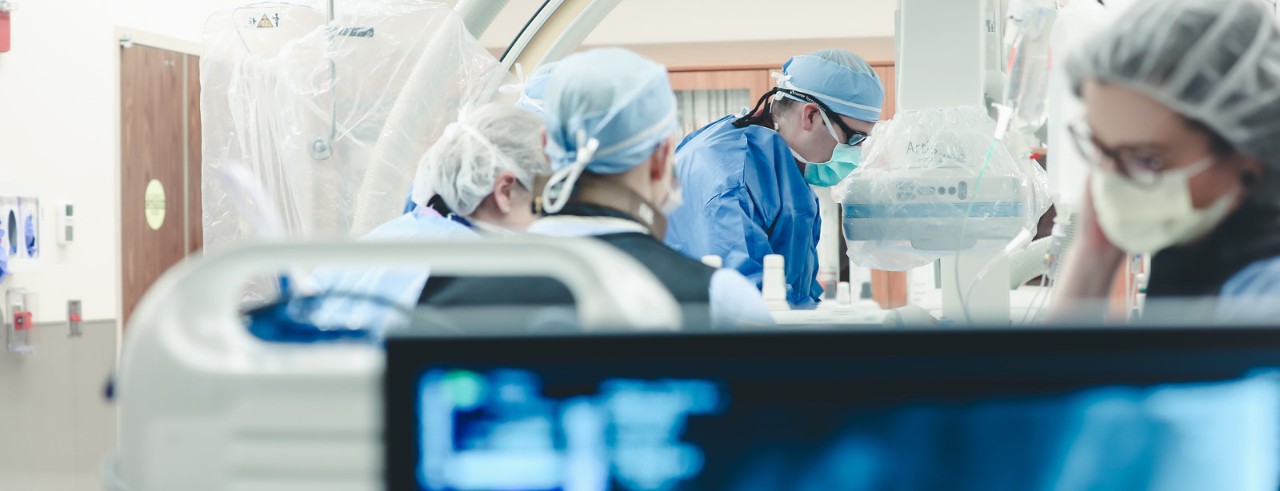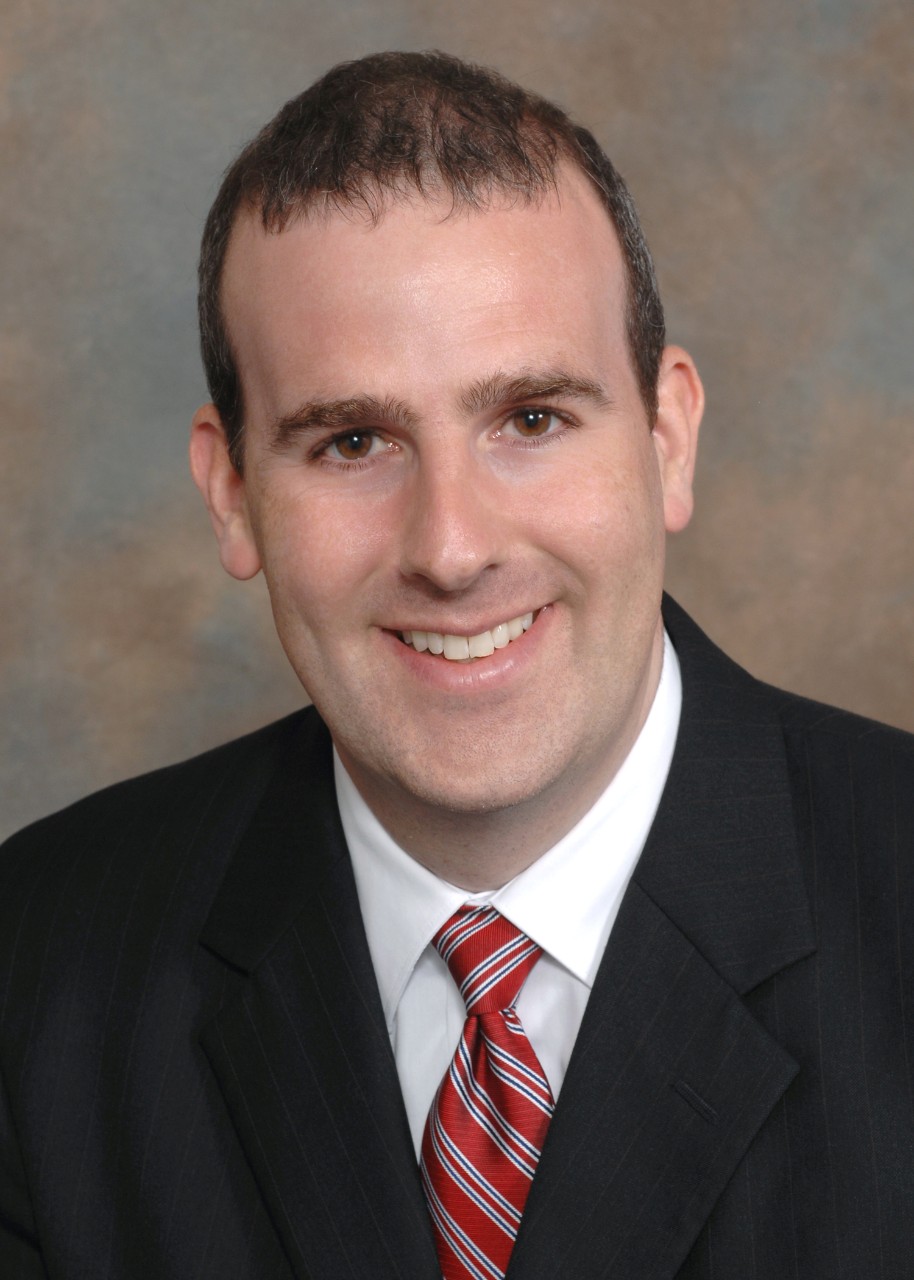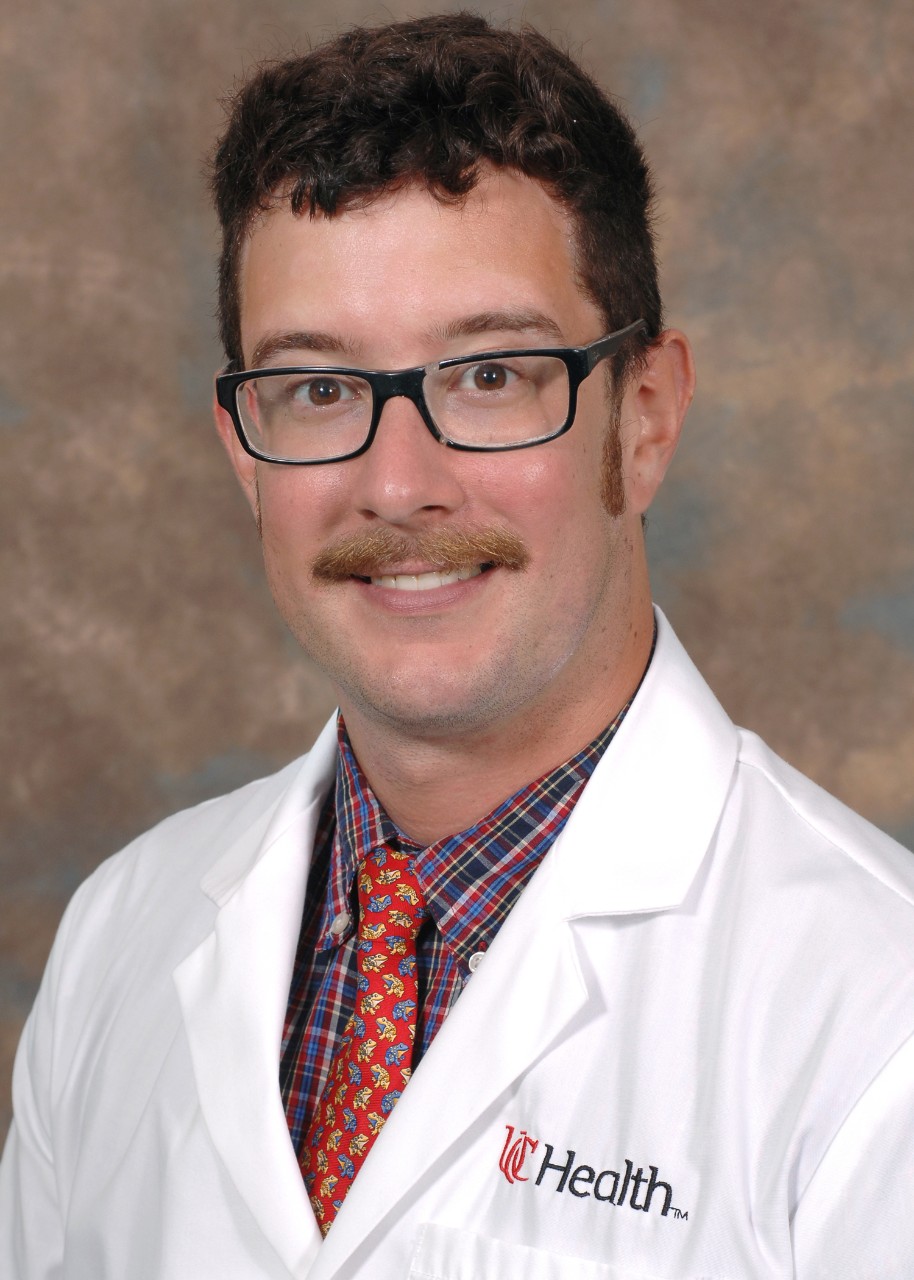
Stroke experts offer guidelines for treatment during pandemic
UC, UC Health researchers publish recommendations for using stroke therapy during COVID-19 outbreak
Stroke researchers at the University of Cincinnati have released a new report recommending the proper protocol for delivering lifesaving treatment to stroke patients during the COVID-19 pandemic.
The report, published in Stroke, a journal of the American Heart and American Stroke associations, is timely as more data emerges that patients with COVID-19, even young, otherwise healthy patients, are experiencing strokes. The authors emphasize that diagnosis with COVID-19 should not prevent patients from receiving this time-sensitive treatment.
“Endovascular treatment for stroke involves the use of small catheters inserted from the groin or the arm into the blood vessels of the brain to remove a clot and restore blood flow to the brain,” says Dr. Aaron Grossman, assistant professor in the department of neurology and rehabilitative medicine and a UC Health physician who is also the corresponding author on the report. “Opening a brain artery can reverse the effects of the stroke, and for some patients, leads to a quicker recovery time. In this current climate, the treatment presents challenges that doctors never previously needed to consider.”
“We needed to find a process for treating patients using endovascular therapy in the COVID-19 era that would keep our staff safe while we cared for these patients as quickly as possible,” says Dr. Matthew Smith, a neurocritical care fellow and UC Health physician who is the first author on the report.
Researchers reviewed published and real-time anecdotal experiences of providers caring for COVID-19 patients nationally and internationally. As the first patients with COVID-19 were arriving to UC’s Comprehensive Stroke Center, members of every team who cared for these patients met via video to establish recommendations for care.
“We highlighted three populations of potential patients: patients with suspected COVID-19 who come into the emergency department; patients with COVID-19 who are already in the hospital and then develop stroke; and stroke patients without COVID-19 who are cared for at a hospital with constrained resources due to COVID-19, including access to [personal protective equipment], ventilators, ICU beds and staff, ” Grossman explains. “Our proposed algorithm helped us decide recommended points of care. It considers the American Heart/American Stroke associations endovascular treatment guidelines, the safety of patients and staff, predictors of death in COVID-19 patients and the appropriate use of scarce resources.”
The working group concluded that a COVID-19 diagnosis should not prevent doctors from using endovascular therapy to treat a patient’s severe stroke.
“However, we have to use extreme caution when preparing the patient, to keep staff safe,” Smith adds, “and during this time of extreme resource limitation, we have to be prepared to modify our current protocols to provide the best stroke care possible for all patients in the Tristate."
In publishing these recommendations, Grossman says the UC/UC Health Stroke Team researchers demonstrate how “adapting an existing and evolving workflow requires input, coordination and engagement across hospital units and disciplines and believe a multidisciplinary approach that is proactive rather than reactive will best serve patients with stroke during the COVID-19 pandemic.”
Featured photo of Grossman in a procedure. Photo/Tommy Campbell/UC Health
Impact Lives Here
The University of Cincinnati is leading public urban universities into a new era of innovation and impact. Our faculty, staff and students are saving lives, changing outcomes and bending the future in our city's direction. Next Lives Here.
Stay up on all UC's COVID-19 stories, read more #UCtheGood content, or take a UC virtual visit and begin picturing yourself at an institution that inspires incredible stories.
Related Stories
OTR mural celebrates UC alumni success
April 4, 2025
The UC Alumni Association, UCAA, will mark its annual Alumni Celebration during its upcoming Alumni Week, April 7-13, with a community art project commemorating this year’s slate of alumni honorees receiving the organization’s top awards.
Study: Platform-predicted treatments improve outcomes for...
April 4, 2025
Results from a new Phase 3 trial published in the journal npj Precision Oncology found that an assay that includes an assessment of cancer stem cell sensitivity to chemotherapy can accurately decide more effective treatments and lead to increased outcomes for patients with platinum-resistant ovarian cancer.
Pediatrician celebrates 30th UC College of Medicine reunion with...
April 3, 2025
There’s a vital thread woven into the fabric of Chris Peltier’s life. It’s black and red, and it knits all things Bearcat together into a life that was transformed by the University of Cincinnati and the UC College of Medicine.


